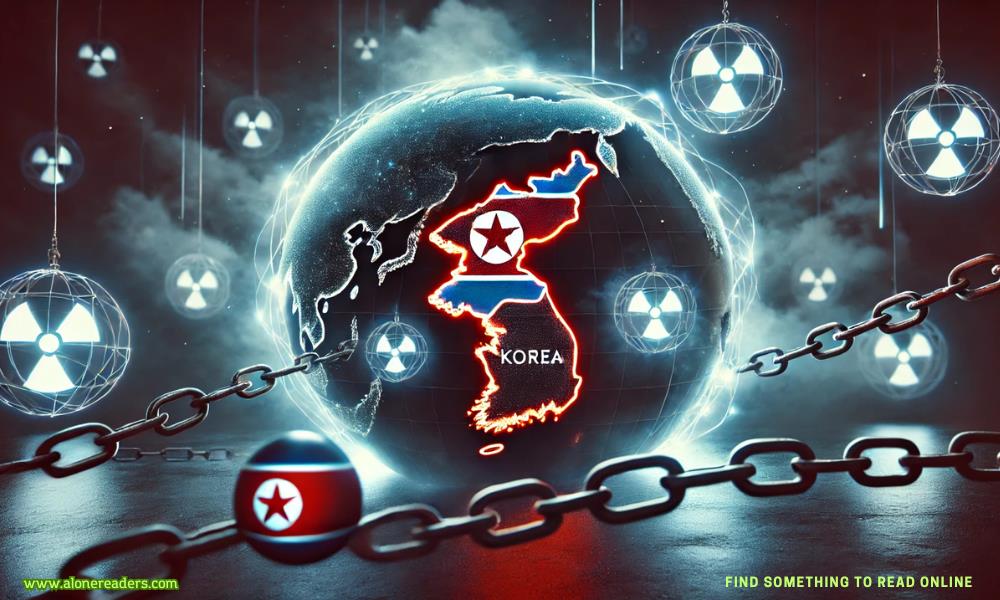
Kim Jong-un's rise to power in late 2011 marked a significant shift in North Korea’s approach to nuclear development and global diplomacy. As the youngest son of Kim Jong-il, Kim Jong-un inherited a regime already under heavy international scrutiny due to its controversial nuclear ambitions. However, his leadership in the 2010s took these efforts to an unprecedented level, escalating tensions and drawing widespread condemnation. The nuclear tests conducted under his rule were not only provocative but also served as a means of solidifying his domestic authority and projecting power on the international stage.
North Korea’s nuclear program, shrouded in secrecy, had been developing for decades, but Kim Jong-un’s tenure saw an acceleration in both testing and the rhetoric surrounding these actions. Between 2013 and 2017, North Korea conducted six nuclear tests, each more powerful than the last. The tests were accompanied by the development and demonstration of ballistic missile technology, which aimed to position the regime as a credible nuclear threat. The 2017 test of what was claimed to be a hydrogen bomb underscored North Korea’s determination to establish itself as a nuclear-armed state, despite facing widespread sanctions and international isolation.
The provocations served multiple purposes for the regime. Domestically, the successful tests were used as propaganda to strengthen Kim Jong-un’s image as a decisive and capable leader, uniting the country under a banner of defiance against external threats. North Korean state media frequently highlighted these achievements, portraying them as a triumph over the oppressive sanctions imposed by the United Nations and Western nations. For a country long defined by its isolation and economic hardships, the nuclear program became a source of national pride and a rallying point for its people.
On the international stage, the nuclear tests were a calculated gamble. By showcasing its capabilities, North Korea aimed to deter any potential military intervention by its adversaries, particularly the United States and South Korea. The tests also sought to leverage the threat of nuclear conflict to extract concessions in diplomatic negotiations. However, this strategy came at a steep cost. The global community responded with a series of increasingly severe sanctions, targeting North Korea’s economy and cutting off its access to critical resources. The sanctions, imposed by the United Nations Security Council with the support of major powers including China and Russia, aimed to pressure the regime into denuclearization. Yet, North Korea’s defiance persisted, further deepening its isolation.
The 2010s also witnessed a series of diplomatic efforts to address the growing crisis. These included high-profile summits between Kim Jong-un and leaders such as South Korean President Moon Jae-in and U.S. President Donald Trump. While these meetings raised hopes for a potential breakthrough, they ultimately failed to produce lasting agreements. North Korea’s insistence on retaining its nuclear arsenal as a means of survival clashed with the demands of the international community for complete, verifiable, and irreversible denuclearization. The breakdown of talks further entrenched the stalemate, with each side blaming the other for the lack of progress.
North Korea’s nuclear tests and the accompanying rhetoric also had significant regional implications. The tests heightened security concerns among neighboring countries, particularly South Korea and Japan, prompting them to bolster their military capabilities and strengthen alliances with the United States. China, North Korea’s traditional ally, found itself in a precarious position. While it sought to maintain stability in the region and avoid a collapse of the North Korean regime, China also faced mounting pressure to enforce sanctions and curtail North Korea’s provocations. This delicate balancing act underscored the complexities of managing relations with an unpredictable and increasingly belligerent neighbor.
The human cost of North Korea’s nuclear ambitions cannot be overlooked. The country’s resources, already stretched thin by decades of economic mismanagement and sanctions, were diverted toward the development of weapons of mass destruction. This focus came at the expense of the welfare of its people, many of whom faced chronic food shortages and poverty. The regime’s prioritization of military advancements over basic human needs highlighted the stark realities of life under Kim Jong-un’s rule, further alienating North Korea from the rest of the world.
In the 2010s, North Korea’s nuclear tests under Kim Jong-un were a defining feature of its international identity. These actions not only reinforced the regime’s isolation but also reshaped the geopolitical dynamics of the region. As the decade closed, North Korea remained a pariah state, defiant in its pursuit of nuclear weapons despite the enormous costs. The legacy of this era continues to influence global security discussions, with the challenges of denuclearization and regional stability remaining unresolved. Kim Jong-un’s nuclear provocations were a stark reminder of the enduring complexities of addressing threats posed by isolated and authoritarian regimes.